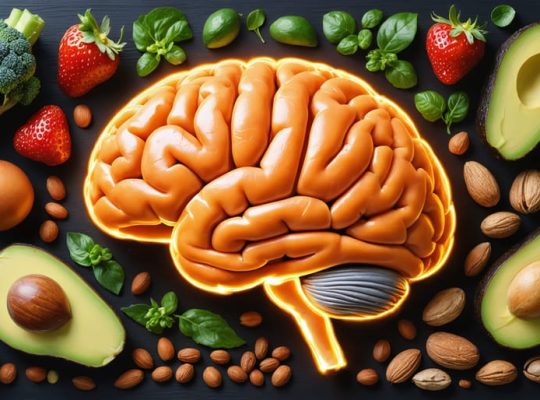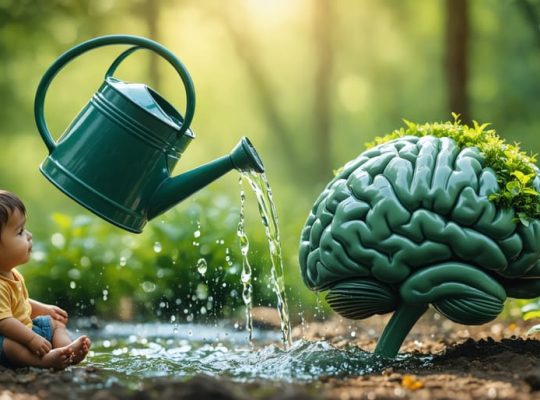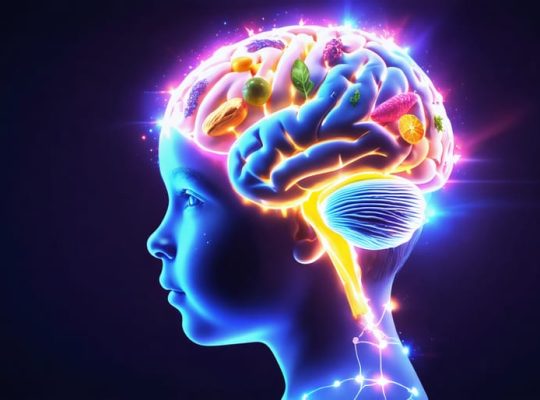Harness the power of exercise to supercharge your mental well-being. When you move your body regularly, you unleash a cascade of benefits that can transform your emotional state and cognitive function. Exercise is nature’s antidepressant, boosting mood-enhancing chemicals like serotonin and endorphins while reducing stress hormones. It’s also a potent anxiety-reliever, helping to calm racing thoughts and soothe frayed nerves. Beyond lifting your spirits, exercise sharpens mental acuity, enhancing memory, focus and decision-making skills. Weaving physical activity into your daily routine is a simple yet profoundly effective way to adopt a healthy approach to life and nurture your psychological well-being from the inside out. So lace up those sneakers and get moving – your mind will thank you.
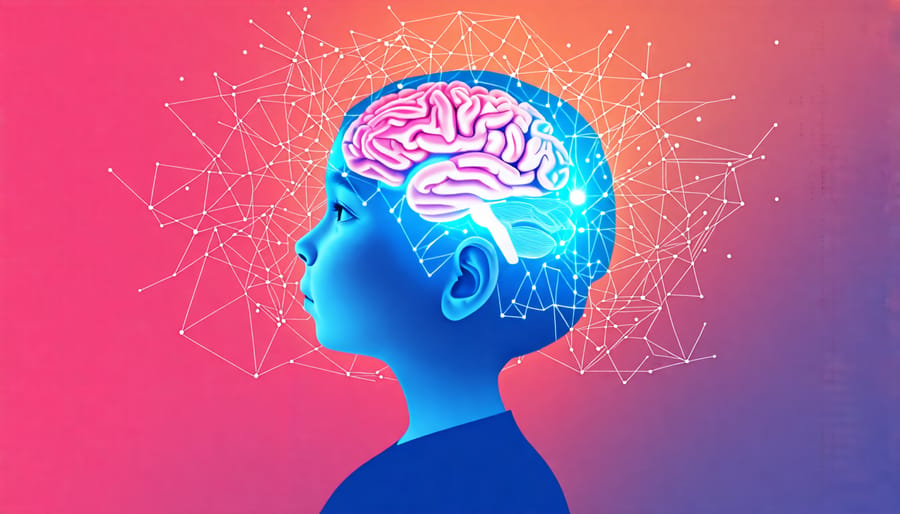
How Exercise Impacts Brain Chemistry
The Role of Endorphins
Exercise triggers the release of endorphins, the body’s natural “feel-good” chemicals. Endorphins interact with receptors in the brain, reducing the perception of pain and promoting positive feelings. During exercise, the surge of endorphins can create a euphoric sensation known as a “runner’s high.” This mood boost can help alleviate symptoms of depression, anxiety, and stress in children. Endorphins also promote relaxation and improve sleep quality, which are crucial for maintaining good mental health. By engaging in regular physical activity, children can tap into the power of endorphins to naturally elevate their mood, reduce negative emotions, and build resilience against mental health challenges. Encouraging children to find enjoyable forms of exercise can help them experience the mental health benefits of endorphins and develop a lifelong habit of physical activity for overall well-being.
Balancing Neurotransmitters
Exercise has a profound impact on the brain’s neurotransmitters, the chemical messengers that regulate mood, motivation, and pleasure. When we engage in physical activity, our bodies release endorphins, which are natural mood boosters that can alleviate stress and promote feelings of well-being. Additionally, exercise increases the production of serotonin, a neurotransmitter that helps regulate mood, sleep, and appetite. Low levels of serotonin have been linked to depression and anxiety, so by boosting serotonin through exercise, we can help combat these mental health challenges. Exercise also stimulates the release of dopamine, a neurotransmitter associated with reward, motivation, and pleasure. This surge of dopamine can provide a natural high, making exercise a healthy and enjoyable activity for children. By regularly engaging in physical activity, kids can help balance their neurotransmitters, leading to improved mood, reduced stress, and enhanced overall mental well-being.
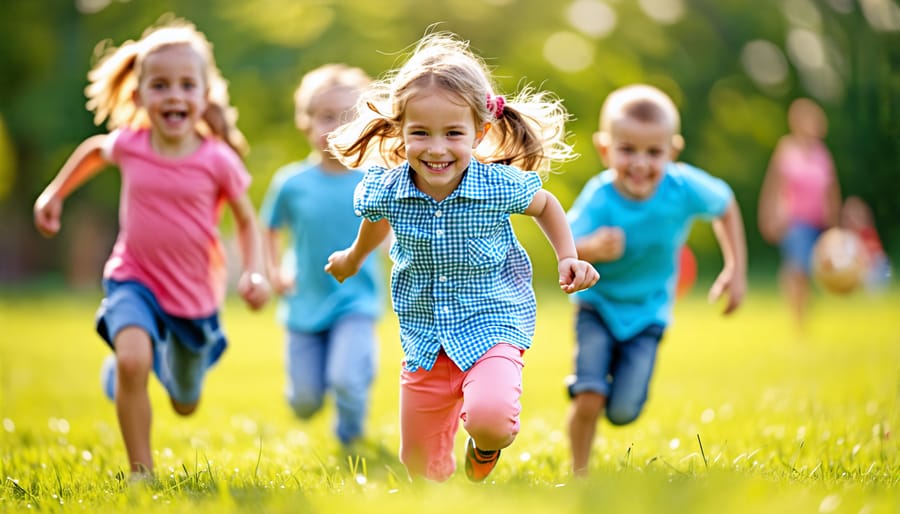
The Mental Health Benefits of Exercise for Children
Reducing Anxiety and Depression
Regular exercise can be a powerful tool in helping children manage symptoms of anxiety and depression. When kids engage in physical activity, their bodies release endorphins, natural chemicals that boost mood and reduce feelings of stress and sadness. Exercise also provides a healthy distraction from worries and negative thoughts, allowing children to focus on the present moment and enjoy the activity at hand.
Moreover, regular exercise can improve self-esteem and confidence in children. As they develop new skills, set personal goals, and experience a sense of accomplishment, kids build a stronger sense of self-worth. This resilience can help them better cope with the challenges and setbacks that sometimes contribute to anxiety and depression.
Engaging in group sports or fitness classes also fosters social connections, which are crucial for mental well-being. When children feel supported by peers and coaches, they are less likely to experience feelings of isolation and loneliness that can exacerbate mental health issues.
By making exercise a regular part of your child’s routine, you can help them build a strong foundation for lifelong mental health. Encourage them to find activities they enjoy, and make it a fun, positive experience for the whole family. With consistency and support, exercise can be a powerful ally in helping your child manage anxiety and depression.
Boosting Self-Esteem and Confidence
Exercise can play a vital role in boosting children’s self-esteem and confidence. When children engage in physical activities they enjoy and experience success, it helps them develop a positive self-image. Mastering new skills, like learning to swim or ride a bike, gives kids a sense of accomplishment and pride. As they see their abilities improve with practice, their self-confidence grows.
Moreover, being part of a sports team or group activity fosters a sense of belonging and social connection, which are essential for healthy self-esteem. Encouraging words from coaches, teammates, and family members further reinforce children’s belief in themselves.
Regular exercise also helps children feel more comfortable and confident in their own bodies. As they become stronger, faster, and more coordinated, they develop a greater appreciation for their physical capabilities. This positive body image is crucial for overall self-esteem, especially during adolescence when body insecurities often emerge.
By supporting children’s participation in enjoyable physical activities, we can help them build a strong foundation of self-esteem and confidence that will benefit them throughout their lives. Whether it’s through organized sports, family outings, or simply playing at the park, every opportunity for exercise is a chance to nurture a child’s positive self-image.
Improving Focus and Cognitive Function
Exercise plays a crucial role in enhancing children’s cognitive function, including attention, memory, and overall academic performance. Studies have shown that physical activity increases blood flow to the brain, delivering essential nutrients and oxygen that support optimal brain function. When children engage in regular exercise, they experience improved focus and concentration, allowing them to better absorb and retain information in school and other learning environments.
Moreover, exercise has been found to stimulate the growth of new brain cells and strengthen the connections between existing ones, a process known as neuroplasticity. This enhanced brain connectivity contributes to better memory formation and retrieval, enabling children to more effectively process and recall information. Physical activity also promotes the release of neurotransmitters like dopamine and serotonin, which are associated with improved mood, motivation, and cognitive performance.
Incorporating exercise into a child’s daily routine can be as simple as encouraging active play, participating in sports, or engaging in family activities like hiking or cycling. By making physical activity a priority, parents and educators can help children develop the cognitive skills necessary for success in school and beyond, while simultaneously supporting their overall mental health and well-being.
Encouraging Exercise for Mental Well-Being
Making Exercise Fun and Engaging
Engaging children in physical activity can be a fun and rewarding experience. To make exercise enjoyable, consider their individual interests and age. For younger kids, turn exercise into play with games like tag, hide-and-seek, or obstacle courses. Older children may enjoy team sports, dance classes, or outdoor adventures like hiking or biking. Encourage trying new activities to discover hidden talents and passions.
Make exercise a family affair by going on walks, playing in the park, or having dance parties at home. Set a positive example by being active yourself and celebrating everyone’s efforts. Praise persistence over performance to build confidence.
Remember, the goal is to foster a lifelong love of movement. Let children choose activities they genuinely enjoy, even if it’s not a traditional sport. With creativity and encouragement, exercise can become a natural and exciting part of their daily lives, supporting their mental and physical well-being.
Integrating Exercise into Family Routines
Integrating exercise into your family’s daily routine can be a fun and rewarding way to support your child’s mental health. Start by setting a positive example – when your kids see you being active and enjoying it, they’re more likely to join in. Look for opportunities to be active together, like evening walks, weekend hikes, or backyard games. Encourage your children to find physical activities they enjoy, whether it’s a sport, dance class, or simply playing at the park. Remember, exercise doesn’t have to be structured or intense to be beneficial. Aim to make movement a regular part of your family’s lifestyle, just like eating a healthy diet. By prioritizing physical activity and approaching it with enthusiasm, you’ll help your children develop healthy habits that support their mental well-being for years to come.

In conclusion, the powerful link between exercise and children’s mental health cannot be overstated. From reducing anxiety and depression to improving self-esteem and cognitive function, physical activity offers a myriad of benefits for our kids’ emotional well-being. As parents, teachers, and healthcare professionals, it is our responsibility to prioritize and encourage regular exercise as a fundamental component of a healthy lifestyle. By role modeling active behaviors, creating opportunities for movement, and supporting our children’s physical pursuits, we can help them develop resilience, confidence, and a positive outlook on life. Remember, even small steps can make a big difference in your child’s mental health journey. So let’s work together to boost your child’s mental health through the transformative power of exercise. By making movement a daily priority, we can give our kids the tools they need to thrive emotionally, now and for years to come.



